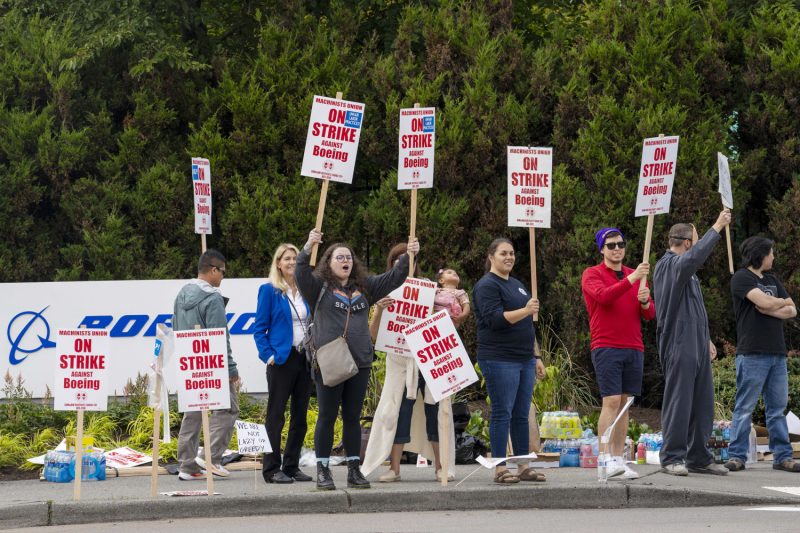In recent months, Boeing, the aerospace giant, has been facing significant challenges as it implements sweeping cost-cutting measures amidst a factory worker strike. The decision to freeze hiring comes as a direct response to the ongoing strike and aims to address the financial strain caused by disrupted operations. With the strike impacting essential production processes, Boeing has been forced to reevaluate its workforce strategy to mitigate the financial impact of the labor dispute.
As one of the world’s leading aerospace companies, Boeing plays a crucial role in the aviation industry. The company’s products range from commercial airplanes to defense, space, and security systems, making it a key player in the global market. However, the ongoing strike has disrupted Boeing’s usual operations, leading to delays in production and delivery schedules. This, in turn, has put significant financial pressure on the company, necessitating immediate cost-cutting measures.
By freezing hiring, Boeing aims to control its expenses in response to the challenges posed by the factory worker strike. Hiring freezes are a common strategy employed by organizations facing financial difficulties or operational disruptions. By halting new recruitment, Boeing can reduce its payroll expenses and refrain from further straining its financial resources during this turbulent period.
The decision to freeze hiring, while a necessary step to address immediate financial concerns, can have long-term implications for Boeing’s workforce and operations. As new projects and initiatives are put on hold, existing employees may face increased workloads and stress, potentially impacting morale and productivity. Furthermore, a prolonged freeze on hiring can hinder Boeing’s ability to attract top talent in the future, as potential candidates may be deterred by the perception of instability within the company.
Boeing’s approach to managing the factory worker strike and its aftermath will be closely watched by industry analysts, investors, and employees alike. The aerospace giant will need to strike a delicate balance between addressing short-term financial challenges and maintaining its long-term competitiveness and viability in the market. As the situation unfolds, Boeing will need to carefully navigate the complexities of labor relations, cost management, and strategic decision-making to weather the current storm and emerge stronger on the other side.
In conclusion, Boeing’s decision to freeze hiring in response to the factory worker strike reflects the company’s commitment to managing its financial resources prudently in the face of operational disruptions. While the hiring freeze may help alleviate immediate financial pressures, it also poses challenges in terms of workforce management and long-term talent acquisition. As Boeing navigates through this difficult period, its ability to strike a balance between short-term cost-cutting measures and long-term strategic goals will be critical in determining its future success in the aerospace industry.


























